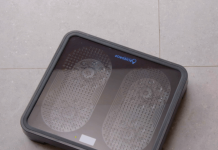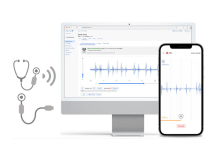Advanced Neuro Diagnostic Imaging (ANDI) software extracts features from medical images to map and analyze microstructural properties of white matter
Provides adjunctive information for use with the complete standard of care evaluation of a patient’s brain health
Advanced Neuro Diagnostic Imaging (ANDI) software extracts features from medical images to map and analyze microstructural properties of white matter
Provides adjunctive information for use with the complete standard of care evaluation of a patient’s brain health. Imeka, the leading neuroimaging company combining diffusion imaging and AI to map white matter microstructure, today announced that the U.S. Food and Drug Administration (FDA) has granted 510(k) clearance for its Advanced Neuro Diagnostic Imaging (ANDI) quantitative imaging software. The report generated by ANDI provides medical professionals, including but not limited to neurologists and radiologists, with important reference information on brain white matter as an adjunct to care.
“Many medical imaging tools involving AI have been cleared for use in the clinic in the past two years, which shows the strength and progression of the field. Imeka is pioneering AI in diffusion MRI-based white matter imaging to evaluate microstructural properties of white matter in greater detail than any other techniques,” said Jean-René Bélanger, Chief Executive Officer at Imeka. “We are pleased to announce FDA 510(k) clearance of ANDI, our quantitative imaging software, and make the technology available to healthcare providers across the U.S. – which is going to have a major impact in brain disease management in the coming years. This also comes at a very crucial time with the announcement of the addition of two new CPT 3 codes by the AMA for quantitative brain MRI assessment, which we expect our clients to be able to get reimbursement from, starting in January 2024.”
Imeka’s ANDI automated radiological image processing software extracts white matter bundles that connect specific regions of the brain and performs microstructure analysis along them. The device processes diffusion-weighted images using reconstruction algorithms called modeling, tractography, and fiber bundling to map microstructural properties of the white matter. ANDI generates a DICOM-encapsulated PDF report highlighting bundles with the greatest deviation from the normative range and a detailed analysis of all bundles’ microstructural and macrostructural values.
RELATED: UltraSight receives FDA approval for AI-based cardiac ultrasound technology
“Imeka has spent the past 12 years developing novel neuroimaging technologies that play an influential role in the search for and development of cures for brain diseases,” said Maxime Descoteaux, Co-founder and Scientific Advisor at Imeka. “With ANDI, we’re unlocking important information in brain white matter tracts that can assist radiologists, neurologists, and other medical professionals in providing high-quality, efficient patient care.”
To learn more, please visit www.imeka.ca.
The information presented by ANDI is for measurement of brain white matter tracts only without making a prediction, diagnosis, or interpretation of brain health. It is the responsibility of the physician to review all clinical information associated with a patient in order to make a diagnosis and to determine next steps in the clinical care of the patient.
About Imeka
Imeka is the global leader in white matter microstructure imaging, combining advanced MRI processing capabilities and artificial intelligence to bring novel insights to the research and clinical communities. The company has been working with all major pharmaceutical companies developing treatments for neurodegenerative diseases and is now offering its state-of-the-art technology to physicians to directly impact patients. Based in Sherbrooke, Quebec, Canada, the company also has an office in Cambridge, Massachusetts. Learn more at www.imeka.ca.




